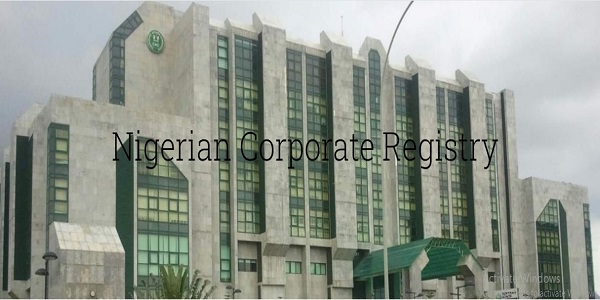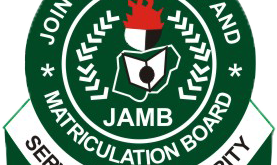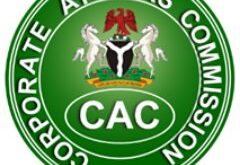FOR every beginning, there must be an end. It may come when anticipated or prior to the expected time. The sure thing is that the end will definitely come.
This altruism applies to life generally, talk more of an appointment to a public office with a tenure.
Therefore, about two weeks ago when workers at the headquarters of the Corporate Affairs Commission (CAC) in Abuja chose to stage a show of shame in public, one will naturally wonder about the rationality of their action on one hand and bemoan the depth of corruption in public service on the other hand. Because celebrating the exit of the immediate-past director-general of CAC, A.G. Abubakar, who performed creditable well, showed that it was no business as usual, hence their reaction to the change of guard.
The reasons are not far-fetched. Since his appointment as the Registrar-General on January 7, 2020, his immediate priority was to consolidate the various initiatives on Ease of Doing Business to support the Economic Recovery and Growth Plan of the Federal Government at the time and up to his last day in office. In pursuance of this objective, the following reforms were initiated and achievements recorded.
Year 2020:
1. Revision of Operations Checklist
On 22nd March 2020, the Commission published the Draft Operations Checklists and invited inputs from Customers, other stakeholders and the general public. The Operations Checklists were to standardise the Commission’s service processes and procedures with a view to improving service delivery.
2. Publication of Guidelines on Holding Annual General Meetings (AGMs) of Companies Using Proxies
On 26th March 2020, and in response to the Federal Government directive on physical distancing as well as restriction on the maximum number of persons at gatherings in order to curb the spread of the corona virus pandemic (COVID-19), the Commission published guidelines for Companies who wished to hold their AGMs during this period. The Companies were advised to take advantage of Section 230 of the Companies and Allied Matters Act (CAMA), 1990 which allowed holding of AGMs of Companies using proxies. This was to ensure that Companies were still able to fulfil the requirements of law within the period.
3. Suspension of Service Delivery Timelines
On 30th March 2020, the Federal Government announced the first phase of nationwide lockdown beginning Tuesday, March 31st 2020 due to the COVID-19. This was at a time that threat of the pandemic had forced major economies in the world to shut down physically. The situation also affected Company registration services globally. Some jurisdictions, including Kenya, South Africa and Uganda suspended services while a few others like United Kingdom (UK) and Nigeria provided skeletal online services.
On 4th May 2020, the Federal Government announced the partial ease of lockdown and re-opening of the economy. The working days were reduced to Mondays, Wednesdays and Fridays and working hours from 8:00 am to 2:00pm. The cadre of officers allowed at work were officers on Grade Level 14 and above (i.e. Principal Managers and above in the case of the Commission, representing less than 20% of its workforce). It was clear that the Commission would not be able to deliver services in the manner it did before the pandemic. The Commission was thus constrained to suspend its service delivery timelines. In order to manage the service delivery expectations of Customers and the general public therefore, the Commission published a notice on 15th May 2020, informing Customers and the general public that its earlier published service delivery timelines were suspended.
4. Phased Re-opening of Commission’s Offices in FCT, Lagos and Ogun States
On the heels of the announcement of partial easing of the lockdown in the FCT, Lagos State and Ogun State by the Federal Government, the Commission re-opened its offices in these locations to Customers on 6th May 2020, subject to the following conditions –
• Open from 9:00 am to 2:00 pm on Mondays, Wednesdays and Fridays only;
• Only 50 Customers were allowed per time;
• Customer were to wear facemasks throughout their stay in the Commission;
• Customer were to register their names as well as other details and sit under canopies procured and set-up within the Commission’s premises to take their turns;
• Turns were taken in the order of Customer registration and in batches of 20;
• Suspension of manual searches by Customers (this became necessary to reduce physical contact with Customers and, more importantly, secure the safety as well as integrity of documents in the files);
• Issuance of search reports by the Commission; and
• Notification to Customers when the outputs were ready for collection.
5. Generation and Printing of Tax Identification Number (TIN) on Certificate of Incorporation
The Commission collaborated with the Federal Inland Revenue Service (FIRS) to merge the process of obtaining Tax Identification Number (TIN) for companies upon registration. The reform was completed on 29th June, 2020. Since that date, TIN is automatically generated and printed on the incorporation certificate upon completion of the incorporation process. This reform eliminated the time that was hitherto associated with applying for and obtaining TIN from the FIRS by companies after incorporation.
6. Delivery of Pre-Incorporation Certificates to Customers through Designated Courier Companies
Effective 10th August 2020 (for Abuja) and 31st August 2020 (for Lagos), the Commission dispensed with the requirement for submission of original documents (physically or otherwise) before collection of pre-incorporation certificates. Instead, a process was put in place for receiving or sending documents/applications from or to Customers by e-mail. The Commission fully relied on documents uploaded online by the Customers and as approved.
7. Dispensing with Physical Presence of Customers
With effect from 10th August 2020 also, the Commission commenced the phased introduction of a new Service Delivery Framework which dispensed with the physical presence of Customers in its offices. This was necessary in part to ensure strict compliance with the various directives on social distancing in order to curb the spread of the COVID-19 Pandemic.
The new Framework required Customers to submit applications/documents to the Commission either through designated e-mail addresses or courier companies. The Certified True Copies (CTCs) or other outputs of approved applications were forwarded to the Customers through their selected courier Companies.
In the case of queried applications, Customers were contacted by e-mail or phone with details of the query and procedure for the resolution. The Commission could, however, invite Customers to visit its office where further clarifications or details were required.
8. Upgrade of Registration Software
Ahead of the commencement of implementation of the Companies and Allied Matters Act 2020 on 1st January 2021, the Commission began the upgrade of the Company Registration Portal (CRP) to accommodate the changes introduced by the Act. The upgrade was also to enable filing of post-incorporation applications electronically.
The upgrade started on 28th December 2020 and was concluded on 3rd January 2021.
9. Publication of Companies Regulations 2021
The Commission published the Companies Regulations 2021 approved by the then Honourable Minister of Industry Trade and Investment, Otunba Adeniyi Adebayo upon recommendation by the Commission after extensive engagement with stakeholders. The Regulations came into force on 1st January 2021 and complements the Companies and Allied Matters Act 2020 (CAMA) in the conduct and regulation of registration under the Act.
Through the Regulations, filing fees for registration of all entities under the CAMA were reduced by the elimination of fees hitherto payable by Customers to obtain CTCs of documents at registration. Certified extracts of entities’ information at registration are now issued by the Commission at no cost to Customers.
In addition, the following new services were introduced –
• Full electronic search for entities
• Premium Service/VIP Lounge Facilities (single and multiple transactions)
• Bulk products (access by Specified Public Authority or Credit Reference
Agency to information not on public record)
• DVD Directories
The Regulations also contain relevant model articles for companies pursuant to Section 34, CAMA.
10. Sustained Public Enlightenment and Education on the Companies and Allied Matters Act, 2020 (CAMA)
The Commission continued to explore the traditional and social media to enlighten and educate the general public on the Companies and Allied Matters Act 2020 (CAMA) ahead of its implementation. Sessions were held on television, radio, Zoom and in-person with select audience to bridge knowledge gap and build capacity for stakeholders on the requirements of the new Act.
Years 2021 to Date:
Two major events in the year 2020 largely shaped the reform initiatives and activities of the Commission thereafter to date. These were the global Corona Virus (COVID-19) Pandemic and the repeal and re-enactment of the Companies and Allied Matters Act.
• Corona Virus (COVID-19) Pandemic
The COVID-19 pandemic practically shut down economies globally. The attendant lockdown, physical distancing and restrictions on number of persons allowed at public gatherings disrupted company proceedings. Particularly hit were public companies who found it impracticable to physically meet for their Annual General Meetings (AGMs). To address this challenge, the Commission advised such companies who wished to hold their AGMs during the period to take advantage of Section 230 of the Companies and Allied Matters Act 1990 which allowed holding of AGMs of companies by proxies and published Guidelines for doing so.
• Repeal and Re-Enactment of the Companies and Allied Matters Act
On the 7th of August 2020, the Companies and Allied Matters Act 2020 (CAMA) was signed into law. The Act repealed the Companies and Allied Matters Act 1990 and re-enacted same with more robust provisions better fitted to today’s realities. The Act improved the business environment and performance across the economy as well as reduced direct compliance costs for businesses. It also reduced entry thresholds and regulatory compliance bottlenecks for new and existing businesses; relaxed governance requirements in the case of small and private companies in the areas of statutory minimum for membership, general meetings, accounts, audit, etc.; introduced orderly and more effective procedures for business rescue and resolution of insolvency as well as enhanced transparency and disclosures in areas of ownership, control and accountability. The implementation of the Act commenced on the 1st day of January 2021.
In the wake of the coming into force of the CAMA 2020, the Commission initiated several reforms from 2021 to date in order to consolidate the various initiatives on Ease of Doing Business as well as support the Economic Recovery and Growth Plan of the Federal Government. Highlights of the reforms and activities are as enumerated below.
Year 2021:
1. Companies Regulations 2021
The Commission developed and published the Companies Regulations 2021 (CR) to complement the full application of the new CAMA 2020. The CR contains procedural prescriptions for certain transactions, revised application forms, fees and penalties. It also exhibits relevant model articles for companies pursuant to Section 34 of the CAMA. The CR came into force on 1st January 2021 to complement the full application of CAMA.
2. Deployment of end-to-end Electronic Registration Solution
On 3rd January, 2021, the Commission deployed an upgraded Company Registration Portal (CRP) adequate to the requirements of the CAMA 2020. The upgraded CRP is an end-to-end electronic registration solution which enables customers to initiate and complete registration and post-registration applications electronically as well as generate outputs remotely. Notable capabilities of the upgraded CRP include: one-man company registration; submission of signature electronically; E-certificates with Quick Response (QR) code for verification; E-extracts with updated information and QR code for verification; protection of restricted and personal information of promoters of entities; integration of data submission and document upload for seamless transactions, etc.
3. Electronic Search and Certified Extracts
This is an electronic search service which allows customers to view the information of an entity at N1,000.00 fee. The information is available as “view only” and where hard copies are required, the customer may request for certified extracts.
4. Introduction of Entity Electronic Account
This allows registered entities to submit post-registration documents and statutory returns to the Commission on the Company Registration Portal (CRP) through a dedicated account managed by an administrator or any other person appointed by such entities.
5. Deployment of On-line Customer Support Centre
This solution allows tracking support requests from customers to enhance efficiency. Each request is assigned a unique ticket number that allows customers to track progress and resolution of their requests.
6. Provision of Electronic Work Tools for Staff
The Commission procured and issued 272 units of laptops to approving officers to enable them work remotely. This has reduced the service delivery timelines and increased staff productivity and morale.
7. Commencement of Registration of Limited Liability Partnership (LLP) and Limited Partnership (LP)
On 31st August, 2021, the Commission commenced the registration of new legal entities (LLP and LP). This has provided additional options to investors and professionals on the choice of legal arrangements desirable for the pursuit of their objectives. To this end, a new interface was deployed on the CRP to allow for the registration of the new entities.
8. Commencement of Beneficial Ownership Information Disclosure
The Companies and Allied Matters Act 2020 (CAMA) introduced Beneficial Ownership information disclosure in line with the Principles of Open Government Partnership (OGP) which seeks to promote accountability and transparency in government and to which Nigeria had signed in 2016. The Commission adopted the United Kingdom framework for Persons with Significant Control but with a lower disclosure threshold of 5%.
9. Review of Operations Checklists
The Commission reviewed its Operations Checklists in line with CAMA 2020 and the Companies Regulations 2021 after receiving necessary inputs from customers and stakeholders. This has facilitated a better understanding of the Commission’s procedures and services.
10. Sustained Public Enlightenment and Education on CAMA 2020
The Commission explored traditional and social media to enlighten and educate the general public on CAMA in an effort to bridge knowledge gap on the requirements of the Act.
11. Registration of Business Names under the FGN Survival Fund
Registration of 250,000 Business Names initiated by the FGN under the Survival Fund initiative which was spread to cover every state of the Federation with a minimum of 6,606 per state was completed.
Year 2022:
1. Insolvency Regulations 2022
The Commission developed and published the Insolvency Regulations 2022 (IR) upon the approval of the Honourable Minister for Industry, Trade and Investment (HMITI) on 20th April 2022. The IR complements the copious provisions of CAMA by facilitating a framework for the regulation of insolvency proceedings.
2. Person with Significant Control (PSC) Regulations 2022
In the last quarter of 2022, and upon the approval of the HMITI, the Commission published the Persons with Significant Control (PSC) Regulations 2022. The objective of the Regulations is to provide an effective framework and procedure for obtaining relevant information on Persons with Significant Control/Beneficial Owners of a company, limited liability partnership and any other relevant entity specified thereunder. The PSC Regulations provide guidance and clarification on Beneficial Ownership information disclosure requirements of CAMA.
3. Customer Relationship Management (CRM) and Contact Centre
The Commission installed a state-of-the art CRM and Contact Center to provide online real time support to customers via multiple channels (voice calls, emails, chatbots, social media).
4. Electronic Financial Statements (EFS)
In collaboration with the EU-ACT (European Union-Agent for Citizen-Driven Transformation), the Commission developed an accounting software for filing of financial statements together with annual returns by registered entities. The EFS adopted the open data standard for filing of annual returns in line with global best practices. The EFS was deployed in the last quarter of 2022 after series of public enlightenment and stakeholder engagements held in Abuja, Lagos and Kano.
Year 2023:
1. Integration with the National Identity Management Commission (NIMC) database
The CRP was successfully integrated with the NIMC database. Thereafter, the Commission commenced the use of the National Identification Number (NIN) as the means of identification accepted for all its processes, beginning 1st February 2023. Nigerians and non-Nigerians resident in Nigeria were, from that date, required to provide their NIN (as a unique identifier) for the purpose of identification in any operational transaction with the Commission.
2. Launch of Nigeria’s Open Central Register of Beneficial Ownership
On Thursday, 25th May 2023, Nigeria launched its Open Central Register of Beneficial Ownership (known as the Persons with Significant Control (PSC) Register) in line with its commitment at the Anti-Corruption Summit held in London on 12th May 2016. The PSC Register is a public register of the true ownership and control of companies and limited liability partnerships (LLPs) in Nigeria. With the Register, any person can easily ascertain who owns what in Nigerian companies and LLPs. This is crucial in promoting transparency in the conduct of business and combatting corruption, illicit financial flows as well as other forms of criminality under the cover of companies and LLPs.
3. Hosting of Multilateral Peer Learning Event on Practical Aspects of Implementing Beneficial Ownership Reforms
The Commission hosted (in Abuja) the Multilateral Peer Exchange and Learning Event on the Practical Aspects of Implementing Beneficial Ownership Reforms from 7th to 9th of June 2023. The Learning Event afforded Nigeria and other participating African Countries an opportunity to share knowledge and learnings on the practical aspect of implementation of Beneficial Ownership reforms. The other participating African Countries were Kenya, Liberia, Namibia and South Africa.
4. Training Workshop on the Use of Beneficial Ownership Register
The Commission organized training workshops for its stakeholders on the use of the recently launched Open Central Register of Beneficial Ownership. The Training Workshops were held in Abuja, Lagos and Kano on the 12th, 25th and 27th of July inst. respectively.
5. Working Tools
Additional 800 units of furniture, 248 units of air conditioners and 415 sets of desktop computers were procured by the Commission to enhance staff productivity and improve the working environment.
6. Additional State Office Buildings
The Commission commenced building of additional five (5) State Offices. These were in Abia, Akwa Ibom, Cross Rivers, Jigawa and Kano States. The buildings were to reduce rent burden on the Commission.
7. CRF Innovation Award
The Commission received a Commendation Award from the Corporate Registers Forum (CRF) for innovative initiatives adopted by the Commission (Nigeria) to improve service delivery and operational efficiency. The Corporate Registers Forum is an association of international corporate registries. The objective of the associations is to provide members with the opportunity to review the latest developments in corporate business registers internationally and exchange experiences and information on the present and future operation of corporate business registration systems.
8. Presidential Enabling Business Environment Council (PEBEC) Legislative Award
The Commission was also a recipient of the Legislative Award for Companies and Allied Matters Act (CAMA) 2020 at the 5th PEBEC Awards held in April.
9. National Association of Small and Medium Scale Enterprises (NASME) Award
In addition, the Commission received an Award for Excellence in Corporate Governance and Regulation from NASME.
There is no gain saying that the Corporate Affairs Commission (CAC) had recorded remarkable departure from manual/analogue to computerization/digitalized system. The Commission had upgraded her operations from digitalization to full automated e-operation in rendering services to her valued customers.
It is worthy of note that the shift from the old to the new is precipitated upon diligent adoption of modernized initiatives aimed at enhancing customer satisfaction, increase in revenue generation, as well as strengthening administration of Companies and Allied Matters Acts,2020.
The e-solution currently implemented by the Commission serves as a medium for achieving digitalized services, convenience and transparency as well as improving Ease of Doing Business (EDB) in Nigeria. This milestone of achievement also reduces customers’ burden of going to the Commission daily for their business transactions.
With the above intimidating and game-changing but under-reported achievements under A.G. Abubakar, he was naturally-bound to become a victim of character assassination by organised criminals within a system who couldn’t continue their business as usual, hence the show of shame called celebration of his exit from CAC.
Abdul Gombe ,Public Relations Professional wrote this treatise and was first published in NewsPoint.
 The Commerce Africa African Reneissance
The Commerce Africa African Reneissance




